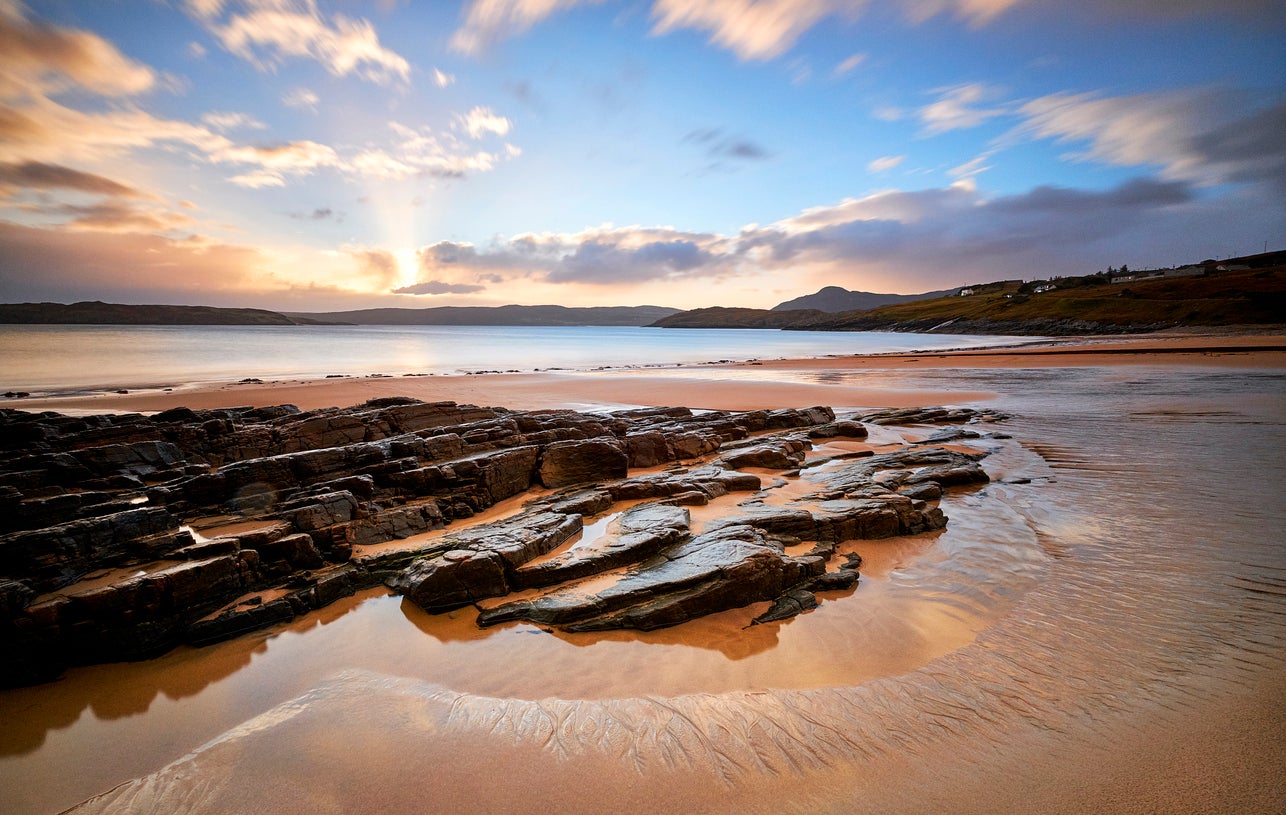Rewild oceans to meet UK’s net zero goals, campaigners say
Organisations want the government to develop an “ocean charter” to implement nature recovery plans

Rewilding our oceans will help the UK meet its target of net-zero carbon emissions by 2050, campaigners have said.
The Marine Conservation Society (MCS) and Rewilding Britain are calling on the government to treat the practice with the same urgency as reforestation in the battle against climate change.
In a new report, the campaign groups write that Britain’s coastal waters cover 500,000 km2 and store an estimated 205 million tons of carbon.
The total is 50 million tons more than the carbon locked up within the UK’s entire stock of standing forests, the report adds
The two organisations want the government to develop an “ocean charter” to implement nature recovery plans as well as climate change mitigation and adaptation policies.
They also want to see “specific and ambitious” marine habitat recovery targets in the UK’s next nationally determined contribution to the Paris Climate Agreement in 2025.
The MCS and Rewilding Britain are calling for government support to establish sustainable and low-carbon fisheries and aquaculture, such as the development of shellfish reefs.
In addition, they want a plan to halve fisheries-related carbon emissions by 2030 that includes emissions from fish processing and feed production in its accounting.
The MCS and Rewilding Britain’s research found that restoring seagrass, saltmarsh, oyster reefs, and kelp forests would give Britain a huge leap forward in meeting its carbon-cutting goals.
The saltmarsh and seagrass habitat of the British Isles is thought to sequester 43,000 tons of carbon annually, the report said, a rate of between two and four times that of tropical forests.
Even in their current depleted state, the UK’s existing stock of saltmarshes and seagrass beds have the carbon storage potential of between 1,000 and 2,000 km2 of tropical forests, the research found.
It is estimated that globally, saltmarsh and seagrass beds can draw down up to 450 million tons of CO2 a year – almost half the emissions of the entire global transport sector.
Currently, the UK has about 427 km2 of saltmarshes, but is losing it at an estimated 100 hectares a year – or 0.2 per cent of the total – with losses projected to reach 8 per cent by 2060.
The government has committed to planting 11 million trees by 2022, but now the MSC wants to see similar commitments to the ocean and wetlands.
By 2019, 21.8 million hectares of UK waters had some degree of environmental protection, according to the Office for National Statistics.
But the two organisations accuse these of being “paper parks” with little or no enforcement banning the most damaging activities.
They want 30 per cent of UK waters to be designated Highly Protected Marine Areas by 2030, with strict limitations on the most damaging activities such as bottom trawling or dredging.
Both fishing methods, along with mining and oil and gas extraction, disturb the seabed, releasing stored carbon into the water column and reducing the ocean's capacity to store CO2.
It also rips out plant life, which is also key to carbon capture.
Currently, bottom trawling and dredging are only banned in 2 per cent of UK seas, the report found.
Even if the two activities were only banned in the UK's existing marine protected areas, it would still cover 140,000 km2, safeguarding an estimated 55 million tons of blue carbon and allowing the seabed to recover.
Under a business-as-usual scenario, the UK's sea shelf sediments could lose 13 million tons of stored carbon over the next decade, the report found.
Dr Chris Tuckett, director of programmes at the MCS, said: “Carbon contained in marine and coastal ecosystems must be considered in the same way as our woodlands and peatbog – critical to the UK's carbon strategy.
“We’re calling on the UK government and devolved administrations to act with urgency to invest in, co-develop and implement a four-nation blue carbon strategy.”
Rebecca Wrigley, chief executive of Rewilding Britain, said: “We’re calling for the rewilding and protection of at least 30 per cent of Britain's seas by 2030.
“Allowing a rich rainbow of underwater habitats and their sea life to recover offers huge opportunities for tackling the nature and climate crises, and for benefiting people's livelihoods.”
Total global greenhouse gas emissions were 55.3 billion tons in 2018 and are on course to reach 60 billion tons by 2030, the report said.
To keep temperature rises below 1.5C in accordance with the Paris Agreement, emissions need to fall to 25 billion tons annually in the next decade.
It is thought rewilding key marine ecosystems around the world could lock up 1.83 billion tons of carbon each year – 5 per cent of the savings needed globally.
A spokesperson for the Department for Environment, Food and Rural Affairs (Defra) said: “The UK is a global leader in the fight to protect our seas, with our ‘Blue Belt’ of Marine Protected Areas extending across 38 per cent of UK waters. We recognise the important role blue carbon habitats play in supporting adaptation and resilience to climate change.
“This is why we are leading calls for a new global target to protect at least 30 per cent of the ocean by 2030 and examining stronger protections for our ‘Blue Belt’ of Marine Protected Areas.”
Join our commenting forum
Join thought-provoking conversations, follow other Independent readers and see their replies
Comments
Bookmark popover
Removed from bookmarks